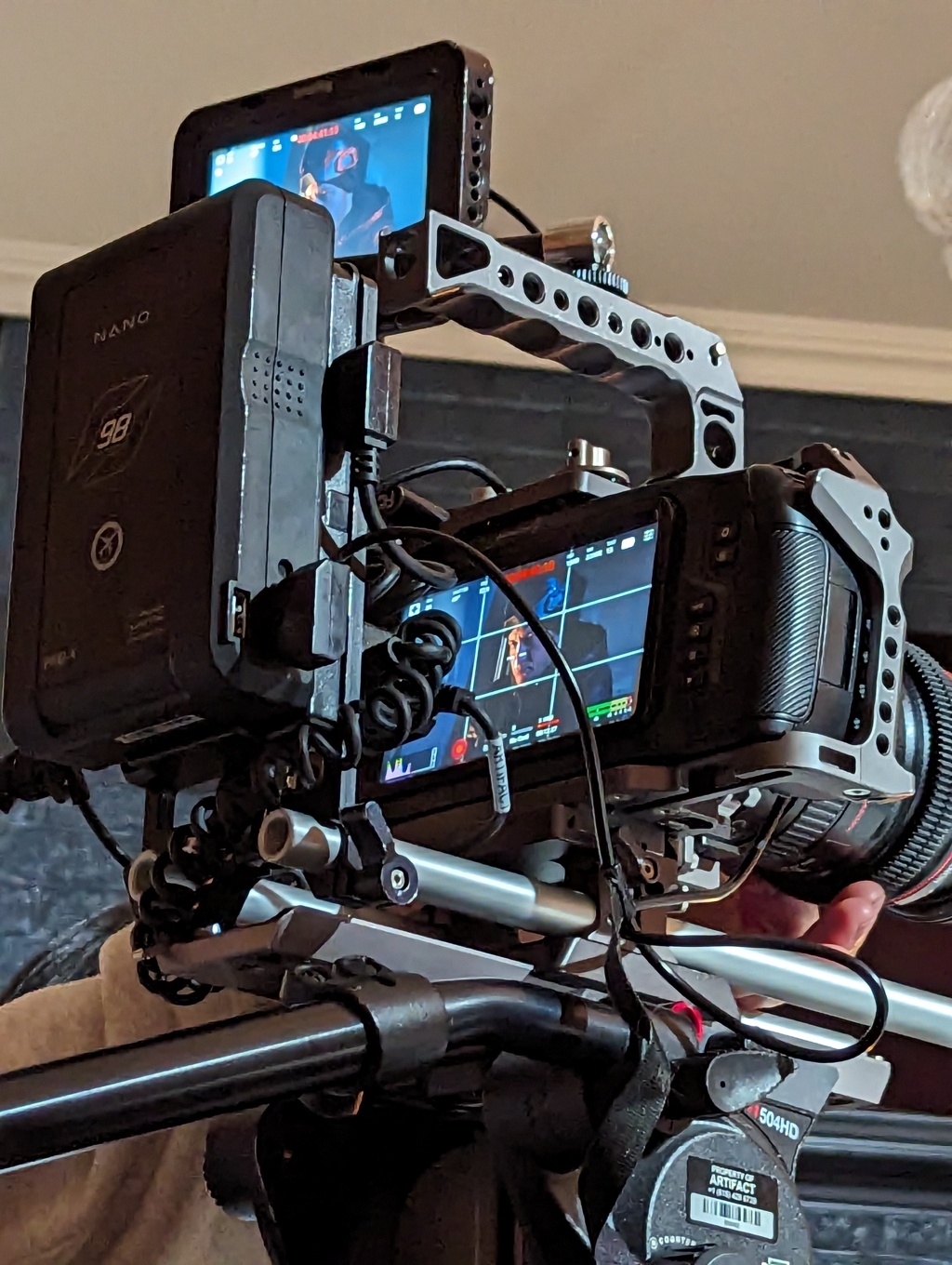By Jack Davis

Photo by me
Hello again! Last week I talked about the experience I had with putting together a shoot , aligning schedules and sorting out finances, as well as how I came to know my team. Today I’ll speak a little on what it was like being there, making it, and letting my actors do their thing.
As many times as I’ve tried to make my projects, and I was directing, I’m still inclined to say that this project was my first time as a director. I don’t know why that is necessarily, maybe it’s because I’d lived more, because I’d started taking writing more seriously, but I know that riding home on the train the knots in my stomach were telling me I’d never done anything like this before. In a lot of ways, I hadn’t. I always said I knew what I was talking about, always acted like it, but this was the first time I was going in fully honest with myself. I didn’t know shit.
Why the hell was I even trying then? I write, I like it, I’m sort of good at it, shouldn’t I stay in my lane? Matt was probably more of the director on all the other projects, even if I didn’t admit it at the time. But Matt told me that I’d need to get around to it eventually, because he knew that deep inside I wanted to be able to direct my own work. I guess he saw potential in me that I didn’t see in myself. I reasoned with him that this was the first thing we were really putting some money into, and the rest of the team were pros, I didn’t want to be the one to fuck it up. He should do it instead. But I couldn’t deter him, so I figured I would just do it.

Photo by me
Being both the writer and director, I sort of went in with the notion that the short film would come out the best if I made sure every line was said exactly as it was written. I was so wrong, and I am so grateful I didn’t stick to my guns on keeping every word the same.
I learned that actors perform the best when they say the lines in the way that feels most comfortable for them, being open to their input. More often than not that means slightly tweaking some of the phrasing and even improvising at some moments. Those gave way to some of the best takes we got. To let the actors do their work and facilitate their performance rather than block it up, I had to do two things that were hard for me: exercise trust and let go of control, control that manifested in wanting to keep the writing the same. It brings me back to those old projects where I’d give notes because I felt like I needed to. Worst case I ended up being a bit hands off, and I’m sure my self-doubt came more to the surface than I would have liked at points, but I’d take that any day over the possibility of stifling the actors’ abilities to mess around and try things out. In the beginning of the first day, I was still a little rigid, inquiring distrustfully about why Rylan or Hannah wanted to rephrase a line. I had this instinct deep inside – one I still can’t explain – that if I let a word of the writing change the whole thing would fall apart and shatter.
To be so wrong and off the mark about such a long held, rigid belief was equal parts jarring and freeing.
It doesn’t mean there’s something wrong with my writing, that’s not what it’s about. The thing that needs to be acknowledged – that I forgot – is that your script is a blueprint. I’m not trying to paint in broad strokes, it probably wouldn’t be good idea to have your script drastically reworded on the fly, but if the changing out of a verb, the tweaking of intonation, or – most often – cutting out a few words is what helps an actor feel more comfortable, it’s usually the right call to let that change occur.

Photo by me
Hopefully this piece helps writers, creators, anyone wishing to direct when it’s not their strong suit. I also have the instinct that a lot of you writing these films or shorts often take on the producing and / or directing roles, so I’m hoping that my touching on how I came to know these people – and get the dough to make the damn thing – was of some use. I want to repeat again that starting out, it’s not the most calculated process. You’ll save yourself a lot of stress if you acknowledge neutrally what you do know and accept what you don’t. Also, take input from the people who do know what they’re doing, whether it’s the actors or your friends behind the camera. The title of “Director” ultimately doesn’t matter as much as knowing that all of this is a team sport. Lean on your collaborators, be nice to them, make them feel seen, and make them feel heard. The film world – and, just, the world – already has enough assholes.
Has anyone had a similar experience, a totally different one, or want to contribute any advice they think may help?
Don’t be a stranger; I’d love for you to comment with any questions, concerns, or friendly disagreements. Also feel free to reach out to me through the “Contact Me” section of my page. Peace and love!

Leave a comment